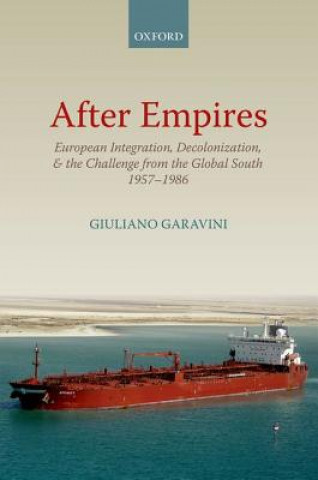
Doručenie
Nákupný poradca





Nehodí sa? Žiadny problém! U nás môžete do 30 dní vrátiť
 Darčekový poukaz
v ľubovoľnej hodnote
Darčekový poukaz
v ľubovoľnej hodnote
S darčekovým poukazom nešliapnete vedľa. Obdarovaný si za darčekový poukaz môže vybrať čokoľvek z našej ponuky.
After Empires
 Angličtina
Angličtina
 530 b
530 b
30 dní na vrátenie tovaru
Mohlo by vás tiež zaujímať


After Empires describes how the end of colonial empires and the changes in international politics and economies after decolonization affected the European integration process. Until now, studies on European integration have often focussed on the search for peaceful relations among the European nations, particularly between Germany and France, or examined it as an offspring of the Cold War, moving together with the ups and downs of transatlantic relations. But these two factors alone are not enough to explain the rise of the European Community and its more recent transformation into the European Union. Giuliano Garavini focuses instead on the emergence of the Third World as an international actor, starting from its initial economic cooperation with the creation of the United Nations Conference for Trade and Development (UNCTAD) in 1964 up to the end of unity among the countries of the Global South after the second oil shock in 1979-80. Offering a new - less myopic - way to conceptualise European history more globally, the study is based on a variety of international archives (government archives in Europe, the US, Algeria, Venezuela; international organizations such as the EC, UNCTAD, and the World Bank; political and social organizations such as the Socialist International, labour archives and the papers of oil companies) and traces the reactions and the initiatives of the countries of the European Community, but also of the European political parties and public opinion, to the rise and fall of the Third World on the international stage.
Informácie o knihe
 Angličtina
Angličtina




 Ako nakupovať
Ako nakupovať





























